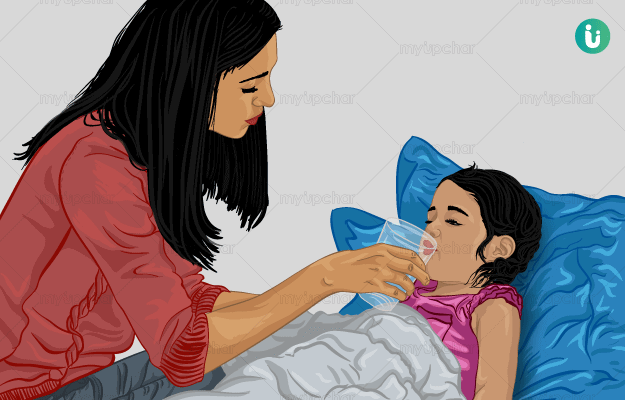What is dehydration in children?
Dehydration is a state where the body lacks sufficient fluids. Dehydration is common among children since they have a tendency to lose fluids quicker. What’s more, children sometimes fail to identify signs of thirst or dehydration, or are just too preoccupied to notice it. Excessive sweating during play or frequent urination may also cause dehydration.
What are its main signs and symptoms?
Common signs and symptoms of dehydration in children include:
- Slowness or lethargy
- Irritability
- Decreased frequency of urination
- Absence of tears when crying, dryness of eyes
- Sunken soft spot on the top of the head of babies
- Hollow, sunken eyes
- Stickiness or dryness of the mucous membranes of the mouth
What are its main causes?
Several factors can bring about dehydration in children. Some of these are:
- Excessive sweating from play or hot climate
- Vomiting, fever and/or diarrhoea
- Mouth ulcers or sores making it painful to eat or drink
- Bacterial infections like salmonella or parasitic infections like giardiasis
- Cystic fibrosis or coeliac disease
- Frequent urination – often due to diabetes mellitus, urinary tract infection, kidney stones
How is it diagnosed and treated?
A physical examination by the doctor is usually conclusive enough to diagnose dehydration in children. However, doctors may also suggest blood tests to check for any infections or electrolyte abnormalities and to ascertain blood sugar levels if urination is frequent. Urine samples may be collected to check for bladder infections and diabetes. A chest x-ray, stool culture or a rotavirus test may also be ordered.
The main form of treatment for dehydration involves methods to rehydrate the body. In infants, mothers may be recommended to nurse for shorter durations and more frequently. In mild cases of dehydration, doctors usually recommend simple oral rehydration which can be administered at home, along with some self-care instructions like a BRAT diet (banana, rice, apple and toast). Increased consumption of liquids like coconut water, lemonade, juices, buttermilk and plain water is necessary as first aid. The child may be offered liquids every few minutes for sipping slowly.
For cases of moderate dehydration, where between 5 and 10 percent of the body weight has been lost, doctors administer intravenous (IV) fluids to rehydrate, and the child is sent home if he/she is able to tolerate intake through the mouth. In severe cases, where over 15 percent of the body weight is lost, children are usually admitted to the hospital for observation, administration of IV fluids and further investigations.

 Doctors for Dehydration in Children
Doctors for Dehydration in Children 

















